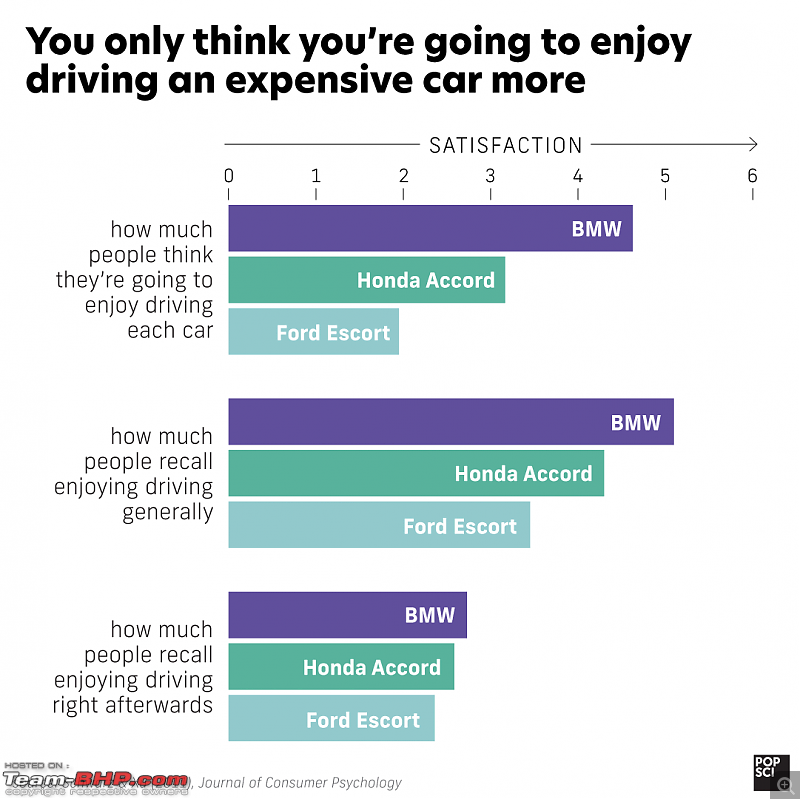| More money = More happy? Or, Expensive car = More happy?
(The title is intentional)
This is a general topic of my interest and I happen to read up a lot on it. I mean, who doesn't want to figure out factors influencing our overall well being in life? I found this article particularly worth sharing here because of the infographic contained in it. I thought the forum members will find it particularly interesting.  Quote: |
But though the things we buy might make us happy in the moment, that feeling atrophies over time. It’s what psychologists call the “hedonic treadmill,” says Amit Kumar, an assistant professor of marketing and psychology at the University of Texas at Austin, whose research focuses on the science of happiness. “We get used to things that we have, and when new, shiny things are advertised, we feel like we need to keep getting more stuff to maintain those feelings.”
|
However, there's more. Quote:
But receiving social support may protect us from the negative consequences of time stress, a concept psychologists call the buffering hypothesis. According to this theory, buying time—by doing things like hiring a house cleaning service instead of tidying up, ordering takeout instead of cooking, or paying extra for a direct flight—can increase our sense of control and, ultimately, our feelings of well-being.
The caveat? The amount of disposable income we have makes a difference when it comes to buying time. If paying someone to clean your house means cutting your grocery budget for the week in half, those hours of reclaimed free time won’t pack the same punch as they might if they were funded by spare change.
|
I have also read about something similar in a book I'm reading. That we have finite cognitive resources when it comes to decision making per day and if we spend those resources making mundane and simple decisions, it exhausts us for the important decisions and compromises our quality of life as a result. So offloading the amount of things that weigh you down mentally, especially the mundane, can really make you feel freed up. There was an example of how the successful people often have secretaries etc to take care of the mundane, allowing them to have a zen-like focus. This is definitely a goal to strive for, if you ask me. Of course the "aam admi" cannot afford to hire underlings to take care of things for them, but we can make use of the technology available to us efficiently to achieve similar ends.
I would definitely recommend reading the entire thing. - How to spend your money for maximum happiness |  (5)
Thanks
(5)
Thanks

 (5)
Thanks
(5)
Thanks
